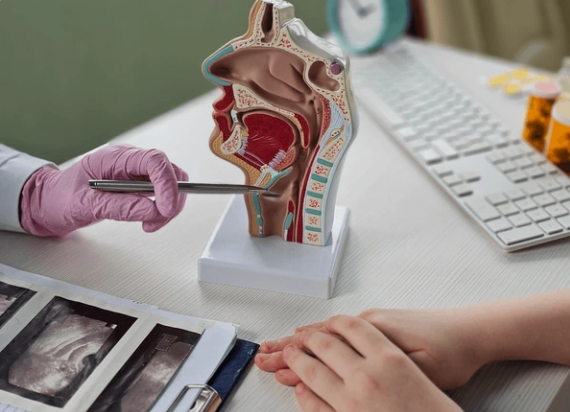Understanding Sleep Apnea
Comprehensive information about sleep apnea, its symptoms, diagnosis, and effective treatment options to help you breathe better and sleep better.
Americans have sleep apnea
Of cases go undiagnosed
Higher risk of heart disease
Improvement with CPAP therapy
Understanding Sleep Apnea
Sleep apnea is a common but serious sleep disorder where breathing repeatedly stops and starts during sleep.
What is Sleep Apnea?
Sleep apnea is a condition that causes breathing to stop and start during sleep. These pauses in breathing can last from a few seconds to minutes and may occur 30 times or more per hour. This disrupts your sleep cycle and can lead to excessive daytime sleepiness and other health problems.
Types of Sleep Apnea
- Obstructive Sleep Apnea (OSA): Caused by airway blockage during sleep.
- Central Sleep Apnea: Brain fails to signal breathing muscles.
- Complex Sleep Apnea: Combination of both types above.
Common Symptoms of Sleep Apnea

Do You Have Sleep Apnea Symptoms?
If you're experiencing symptoms, consult a healthcare provider. VeroHealth can help you get the equipment you need once diagnosed.
Contact a Sleep SpecialistRecognizing Sleep Apnea Symptoms
Sleep apnea symptoms can occur during sleep and throughout the day. Recognizing these signs is the first step toward getting proper treatment.
Loud Snoring
Chronic, loud snoring that may be interrupted by periods of silence followed by gasping or choking sounds.
Restless Sleep
Frequent tossing and turning, waking up multiple times during the night, or feeling like you haven't slept well.
Daytime Fatigue
Excessive daytime sleepiness, difficulty staying awake during activities, or falling asleep at inappropriate times.
Concentration Issues
Difficulty concentrating, memory problems, irritability, or mood changes that affect work and relationships.
Breathing Interruptions
Witnessed episodes of stopped breathing during sleep, often noticed by a bed partner or family member.
Morning Symptoms
Waking up with a dry mouth, sore throat, headaches, or feeling unrefreshed despite adequate sleep time.
Getting Diagnosed
Proper diagnosis is essential for effective treatment. Sleep apnea is typically diagnosed through sleep studies and medical evaluation.
Medical Consultation
Your doctor will review your symptoms, medical history, and perform a physical examination focusing on your airway and neck.
Home Sleep Test
A convenient option where you use a portable device at home to monitor your breathing, oxygen levels, and sleep patterns.
In-Lab Sleep Study
Comprehensive overnight monitoring in a sleep center that provides detailed information about your sleep stages and breathing patterns.
Results Analysis
Sleep specialists analyze your test results to determine the severity of sleep apnea and recommend appropriate treatment options.
Living Well with Sleep Apnea
Beyond medical treatment, lifestyle modifications can significantly improve your sleep apnea management and overall quality of life.
Regular Exercise
Regular physical activity can help with weight management and improve sleep quality, even without significant weight loss.
Sleep Hygiene
Maintain consistent sleep schedules, create a comfortable sleep environment, and establish relaxing bedtime routines.
Avoid Triggers
Limit alcohol consumption, avoid sedatives, quit smoking, and maintain a healthy weight to reduce sleep apnea severity.
Support Network
Connect with support groups, involve family members in your treatment, and maintain regular follow-ups with your healthcare team.
Ready to Breathe Better and Sleep Better?
Take the first step toward better sleep and improved health with our comprehensive sleep apnea treatment programs.
